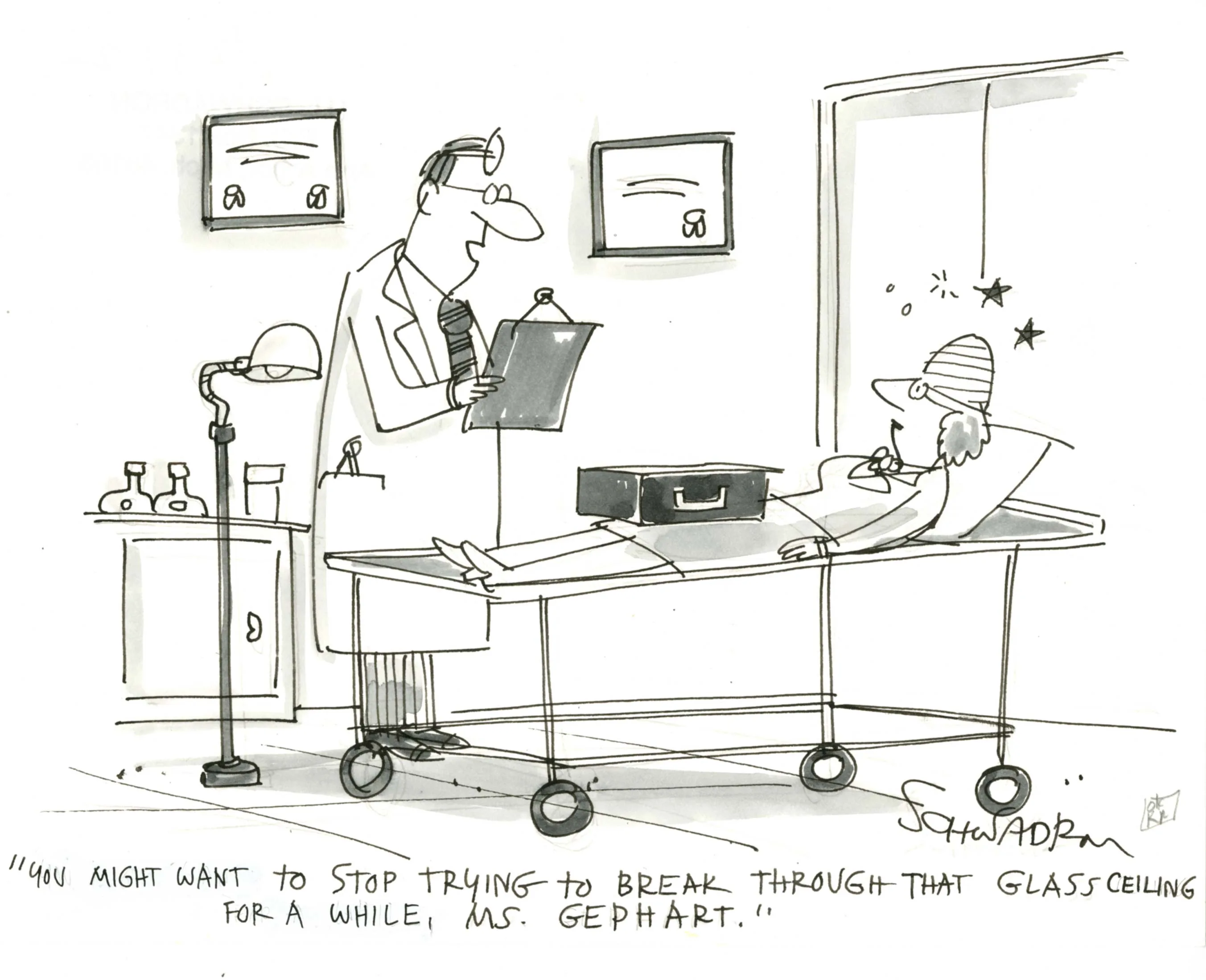From Classroom to Workplace: Theory to Practice
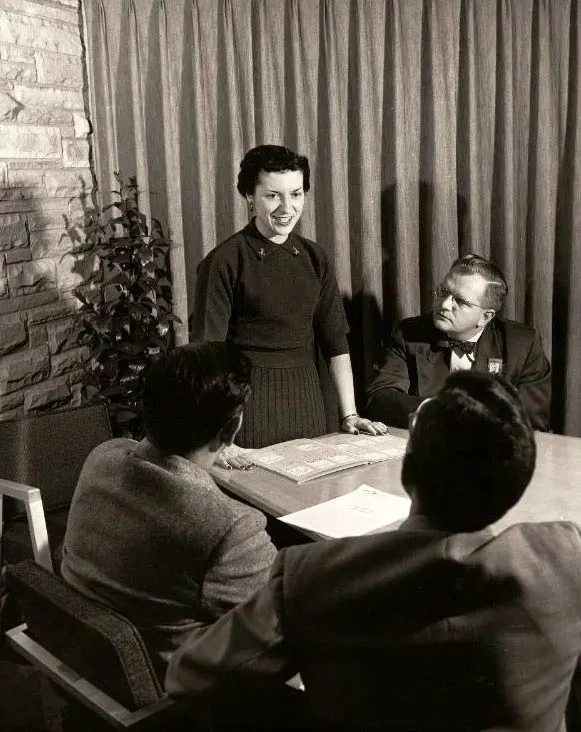
Portrait of Phyllis Cary, 1954. Radcliffe College Archives, Schlesinger Library, Radcliffe Institute, Harvard University. TC 172-5-1
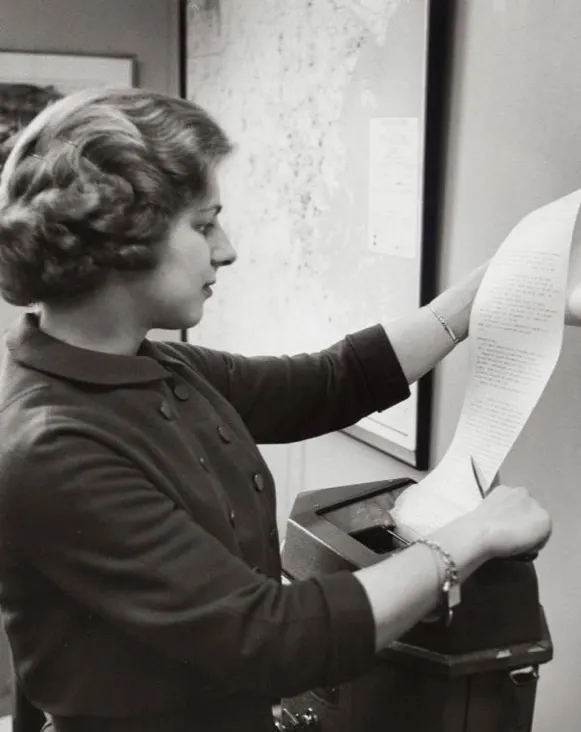
Jane Clifton completes field work at John Hancock Life Insurance Company for the Harvard Radcliffe Program in Business Administration, 1960. Radcliffe College Archives, Schlesinger Library, Radcliffe Institute, Harvard University. TC 172-6-37
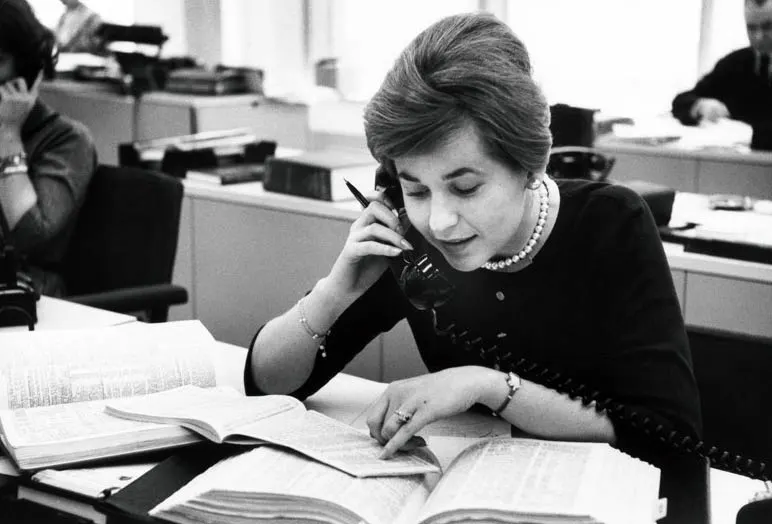
Harvard Radcliffe Program in Business Administration student Beverley Warnagieris completing field work, 1962. Radcliffe College Archives, Schlesinger Library, Radcliffe Institute, Harvard University. TC 172-2-76
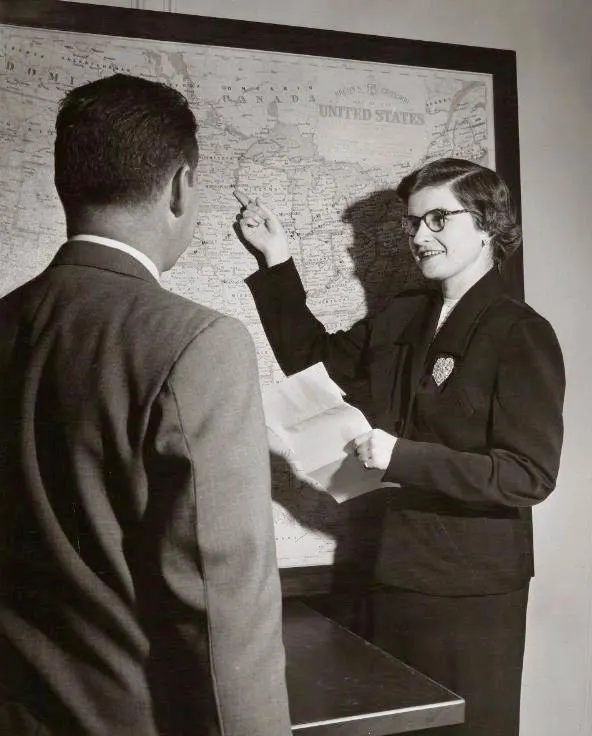
Portrait of Joan Keenan, 1954. Radcliffe College Archives, Schlesinger Library, Radcliffe Institute, Harvard University. TC 172-4-30
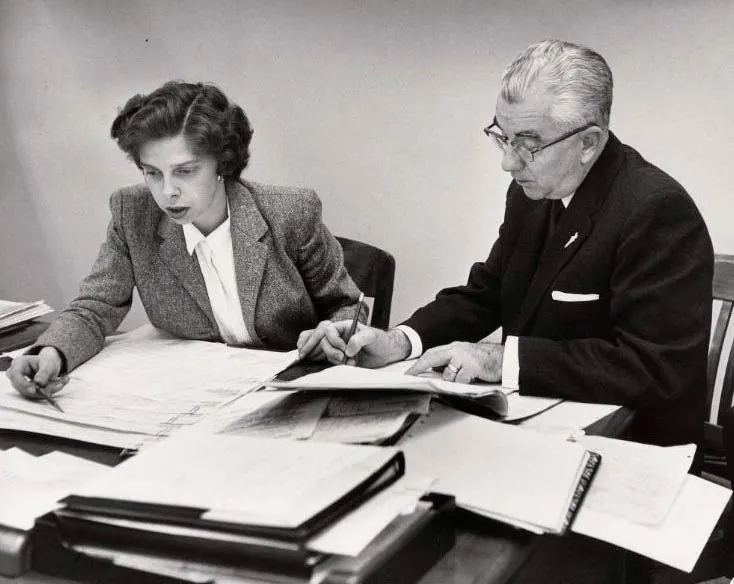
Harvard Radcliffe Program in Business Administration alumna Sarah Knipp, Admin Assistant to Vice-President, Corporate Trust - Transfer Department, Trust Division, Second Bank State St. Trust, ca. 1956. Radcliffe College Archives, Schlesinger Library, Radcliffe Institute, Harvard University. TC 172-2-60
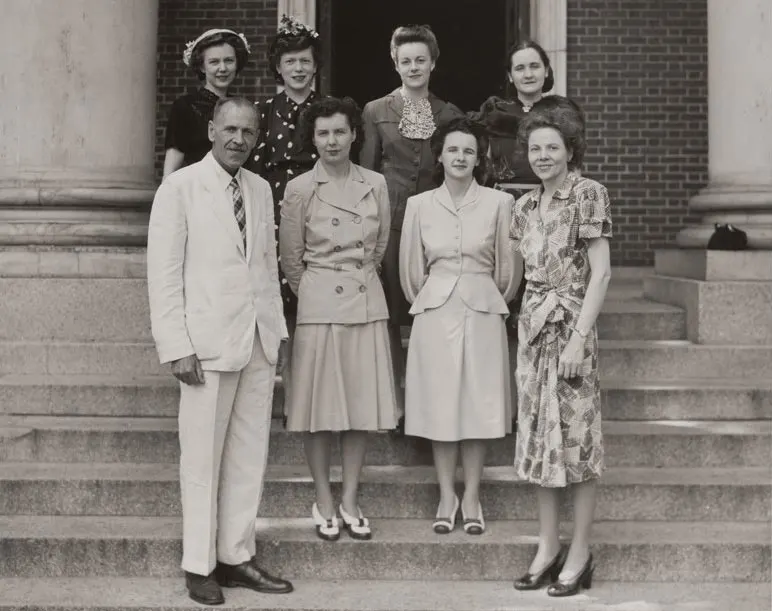
Management Training Program directors, 1946-1947. Radcliffe College Archives, Schlesinger Library, Radcliffe Institute, Harvard University. TC 172-1-23
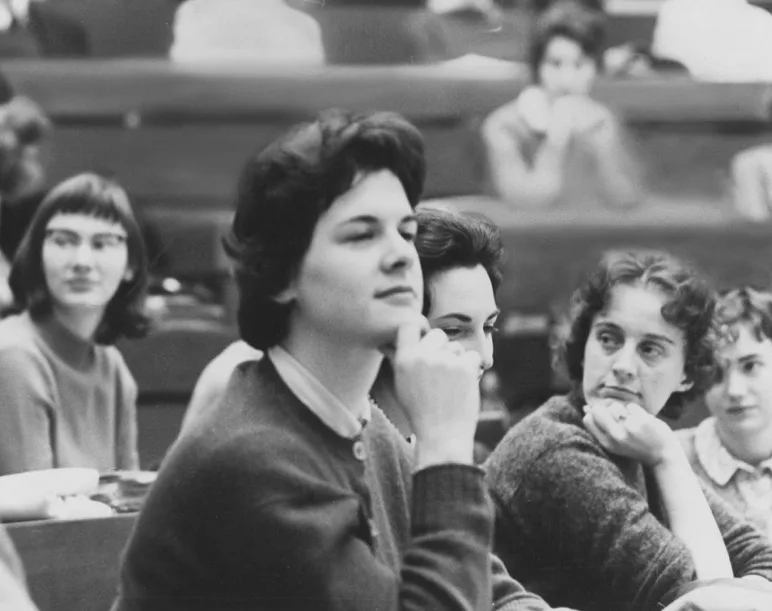
Harvard Radcliffe Program in Business Administration students. Radcliffe College Archives, Schlesinger Library, Radcliffe Institute, Harvard University. TC 172-9-21
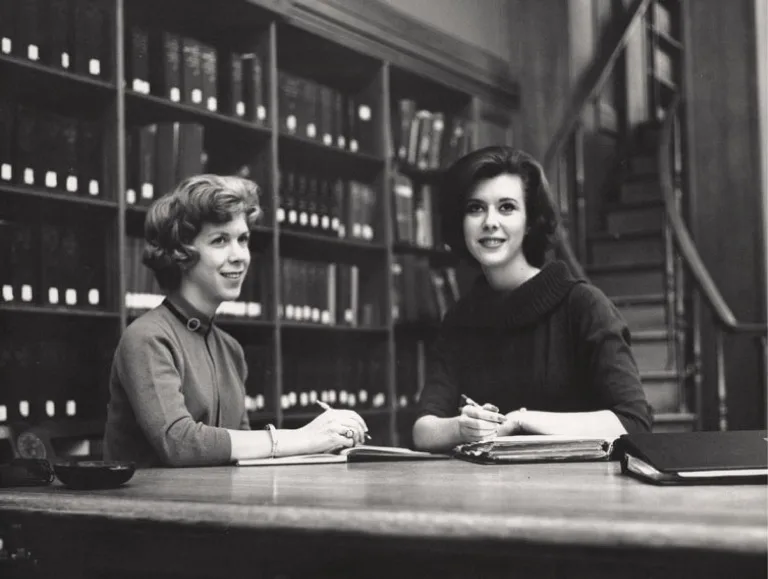
Judy L. Allen (MBA 1963) and Linda T. Ryan (MBA 1963) in Baker Library reading room, ca. 1962-1963. HBS Archives Photograph Collection: Student Life. Harvard Business School. olvwork688099
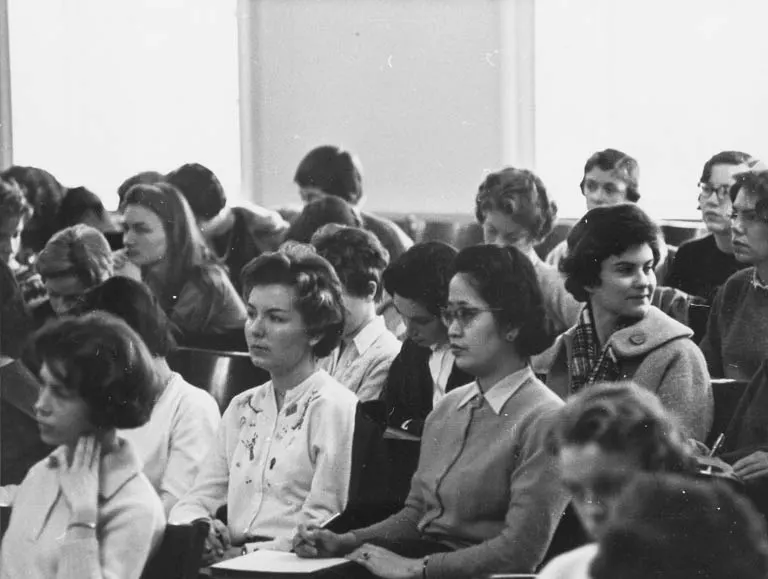
Harvard Radcliffe Program in Business Administration students in class, 1962. Radcliffe College Archives, Schlesinger Library, Radcliffe Institute, Harvard University. TC 172-7-16
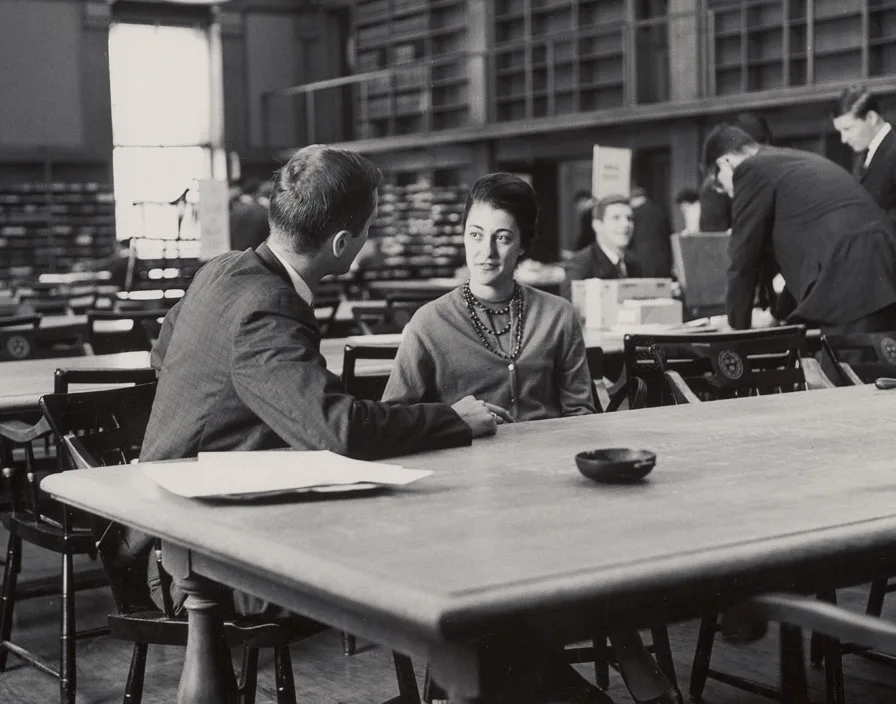
Michelle Roos inquires about club activities from a second year student in Baker Library reading room, circa 1964. HBS Archives Photograph Collection: Student Life. Harvard Business School. olvwork688090
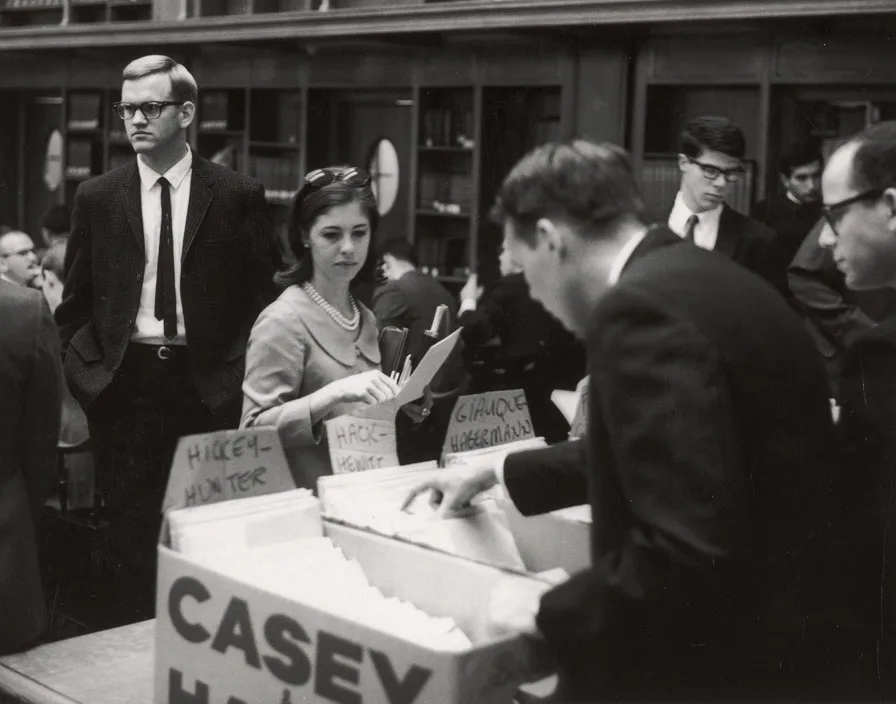
Registration, Class of 1968, September 1966. HBS Archives Photograph Collection: Student Life. Harvard Business School. olvwork688133
